Films
2015
11 Sep
Cycle of short and mid-length films and a slideshow (4th session)
Archive-House (Gulbenkian Park)
Read more
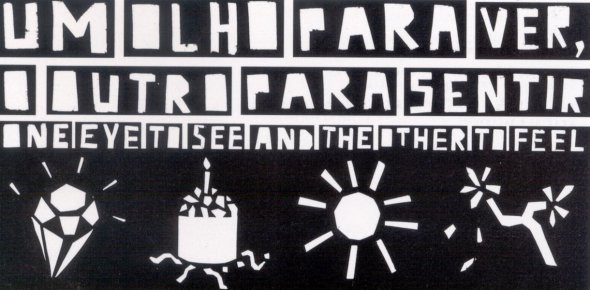
A film in four parts. Four directors film their memories, affections and experiences of an Africa they always knew and where they have never been. Four stories that represent the feeling of a generation, whose grandparents went to live in Africa, and that have now decided to glance at a past that affects their present.
6 Sep
Cycle of short and mid-length films and a slideshow (3rd session)
Archive-House (Gulbenkian Park)
Read more
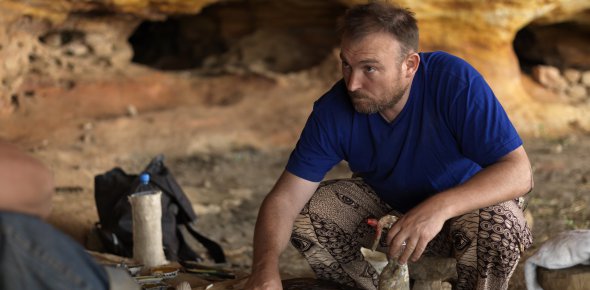
More than twenty years ago, the painter Miquel Barceló travelled by truck through the Sahara desert, from Algeria to Mali. At the end of the trip, his way of painting and his life had changed. He decided to establish his studio on a high cliff top in Dogon Country, where he continues to spend long periods. The Clay Diaries is a documentary that, for the first time, reveals the work and daily life of Miquel Barceló in Dogon Country. At certain moments, its style recalls the films of Jean Rouch, including the preparation and final performance of the show Paso Doble for a Dogon audience.
5 Sep
Cycle of short and mid-length films and a slideshow (2nd session)
Archive-House (Gulbenkian Park)
Read more
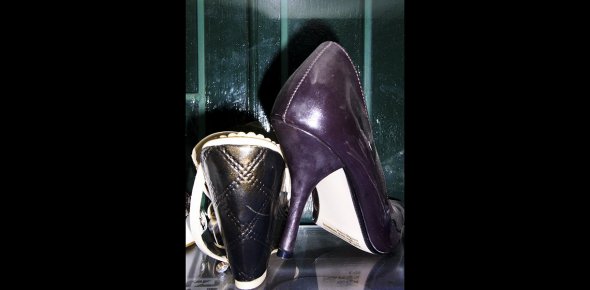
This is a work about business establishments in the city of Mindelo on the Island of São Vicente, Cape Verde. Located in working class neighbourhoods, these shops are characterised by the variety of products and services they offer and for being places where residents meet and relate to each other. Photographed with compact digital cameras, this project is a collaboration between João Dongo and António Júlio Duarte, which was produced for the Cape Verde International Photography Festival in September 2014.
4 Sep
Cycle of short and mid-length films and a slideshow (1st session)
Archive-House (Gulbenkian Park)
Read more
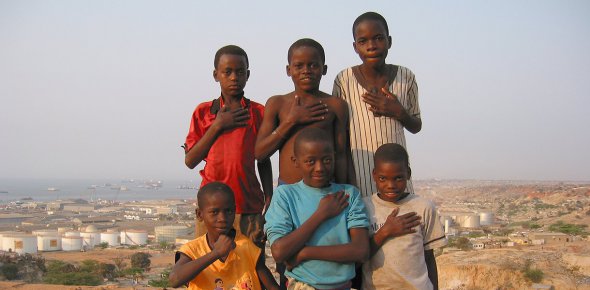
"Muxima" is an elegy to the people of Angola, an homage that begins with the film's title, Muxima, which means "heart" in Kimbundu, an indigenous language in Angola. Muxima is the product of several journeys Alfredo Jaar made to Angola. “Muxima is a visual poem divided into 10 verses. Each verse is structured like a haiku (short Japanese poem), based on only two or three themes, and highly economical in meaning. The aim is to express the maximum with the bare minimum, like those extraordinary short poems written by one of my favourite poets: Giuseppe Ungaretti.” (AJ)
"Muxima", 2005 / Director: Alfredo Jaar / Musicians: Beto de Almeida; Paulo de Oliveira; Os Kiezos, Produções Teta Lando; Ngola Ritmos, Buda Musique; Ruy Mingas, Strauss; Mario Rui Silva, Night & Day; Waldemar Bastos, Luaka Bop / Courtesy Galerie Lelong, New York, and the artist.
23 Jun
Open Air Auditorium
Read more
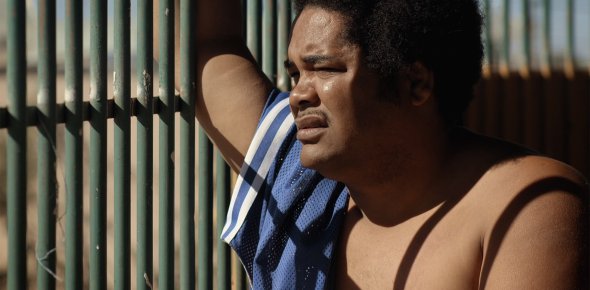
Whites Out, Blacks In, Adirley Queirós (Brazil), 2014.
This year, in the Open Air Auditorium, viewers will be able to watch a film series that has rarely been screened in Portugal. The series is, in a way, a continuation of a debate on Science Fiction in Africa and Latin America held last May as part of the Observatory on Other Literatures. Classic and contemporary sci-fi films will be screened from various African and Latin American countries, where a tradition of this genre exists that is completely unknown in Portugal. While these short, mid-length and feature-length films follow certain sci-fi conventions, their themes, the kinds of characters portrayed and the scenarios in which they take place are highly unique. This series is guaranteed to be a true cinematic revelation.
22 Jun
Open Air Auditorium
Read more
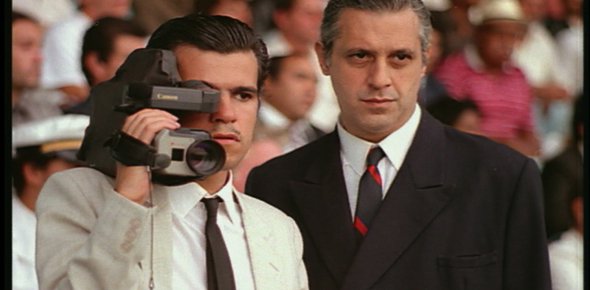
Barbosa, Jorge Furtado (Brazil), 1988 / Panic Attack, Fede Alvarez (Uruguay), 2009 / The Color Out of Space, Sergio Wolf (Argentina), 2014.
This year, in the Open Air Auditorium, viewers will be able to watch a film series that has rarely been screened in Portugal. The series is, in a way, a continuation of a debate on Science Fiction in Africa and Latin America held last May as part of the Observatory on Other Literatures. Classic and contemporary sci-fi films will be screened from various African and Latin American countries, where a tradition of this genre exists that is completely unknown in Portugal. While these short, mid-length and feature-length films follow certain sci-fi conventions, their themes, the kinds of characters portrayed and the scenarios in which they take place are highly unique. This series is guaranteed to be a true cinematic revelation.
19 Jun
Open Air Auditorium
Read more
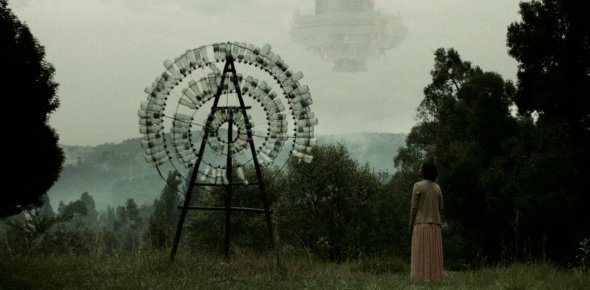
Usoni, Cherie Lindiwe (Kenya), 2013 / Control (Spoek Mathambo), Pieter Hugo, Michael Cleary (South Africa), 2011 / Chigger Ale, The Mysterious Fanta Ananas (Spain and Ethiopia), 2013 / Crumbs, Miguel Llansó (Spain, Ethiopia, Finland), 2015.
This year, in the Open Air Auditorium, viewers will be able to watch a film series that has rarely been screened in Portugal. The series is, in a way, a continuation of a debate on Science Fiction in Africa and Latin America held last May as part of the Observatory on Other Literatures. Classic and contemporary sci-fi films will be screened from various African and Latin American countries, where a tradition of this genre exists that is completely unknown in Portugal. While these short, mid-length and feature-length films follow certain sci-fi conventions, their themes, the kinds of characters portrayed and the scenarios in which they take place are highly unique. This series is guaranteed to be a true cinematic revelation.
2014
13 Oct
Grande Auditório
Read more
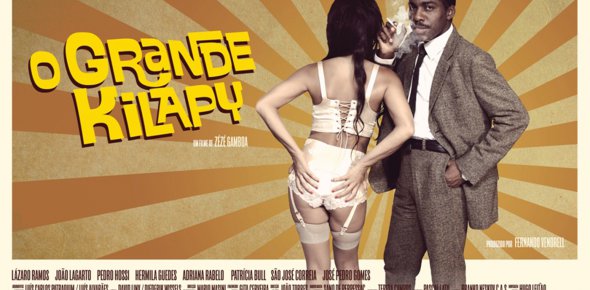
Joãozinho (Little Johnny) was a phenomenon in his time. As a promising young Angolan of mixed blood, he studied engineering in Lisbon, where he picked up the social skills of the power elite in the fascist government, then suffered a broken leg for two-timing a minister’s daughter. The secret police also had it in for Joãozinho because he was popular with fellow students working to incite revolution. They get nothing from interrogation but pack him out of Lisbon and home to Angola. His father calls in a favour to place him at the Colonial Tax Office in Luanda, where Joãozinho artfully pockets money skimmed off transactions to fund a luxury lifestyle and support his friends in the growing liberation movement, even as he takes no part in it. He frequents the best tailors, drives a fancy car, steps out with beautiful women and develops a reputation for always buying drinks for everyone in the house. Joãozinho’s recklessness remains unflappable; but his prestige in the community grows only to the point where his behavior becomes intolerable to the establishment old guard.
In the Angolan language of Kimbundu, Kilapy means scheme, fraud or swindle.
15 Sep
Direction: Luís Correia and Noémie Mendelle
Grande Auditório
Read more
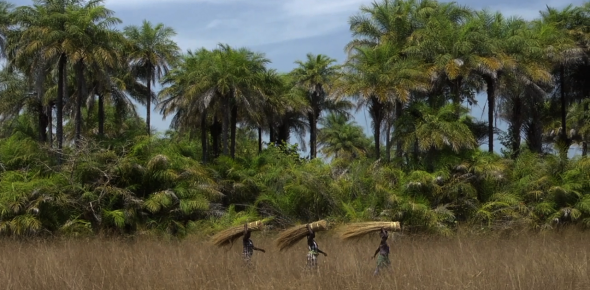
The Bijagós Islands are in the west coast of Africa and belong to Guinea-Bissau. Their remoteness allowed the inhabitants to preserve practices and modes of life that only recently contacted with the ‘outside world’.
23 Jun
Direction: Margarida Cardoso
Anfiteatro ao ar livre
Read more
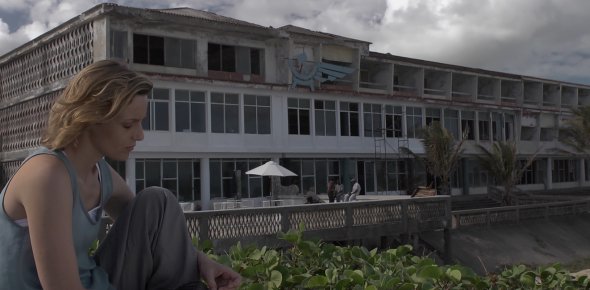
In an African country in full transformation the marcs of a violent pass still impose on everyone’s quotidian and memory; Sara and Rita – mother and daughter – reencounter themselves after several years.
2013
4 Jul
Oliver Hermanus
Anfiteatro ao Ar Livre
Read more
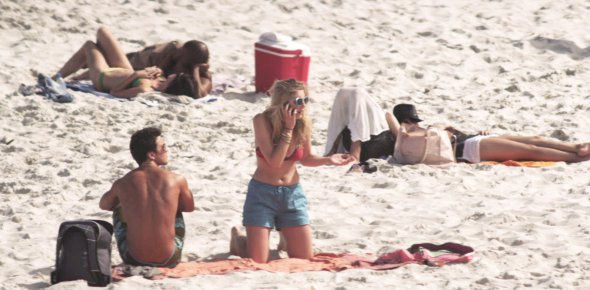
A man leading a double life finds his obsessions leading him in a dark, troubling direction in this drama from South African filmmaker Oliver Hermanus. Francois (Deon Lotz) is a South African businessman in his mid-forties who on the surface seems to be an ordinary, happily married, and respectable citizen.
3 Jul
Ntshaveni wa Luruli
Anfiteatro ao Ar Livre
Read more
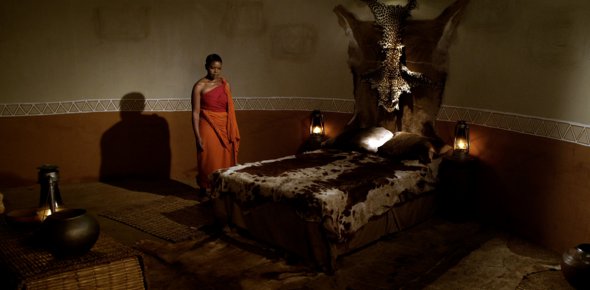
Elelwani is a young university-educated woman who has been brought up in an environment steeped in tradition. Her parents have promised her hand in marriage to the Venda king and, as a dutiful daughter, she wants to obey their wishes. But in order to fulfil her promise, Elelwani must abandon her dreams of travel, further education and – most importantly – her commitment to her one true love.
2 Jul
Bryan Little
Anfiteatro ao Ar Livre
Read more
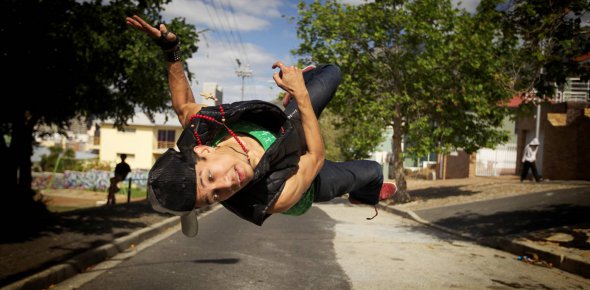
Bryan Little’s “The African Cypher” won the Audience Award for Best South African Film at the 2012 Encounters South African International Documentary Festival. Spectacular dance is front and centre in “The African Cypher”. Dance is a lifestyle, a badge of belonging, and a way of succeeding in the ghetto.
1 Jul
Sara Blecher
Anfiteatro ao Ar Livre
Read more
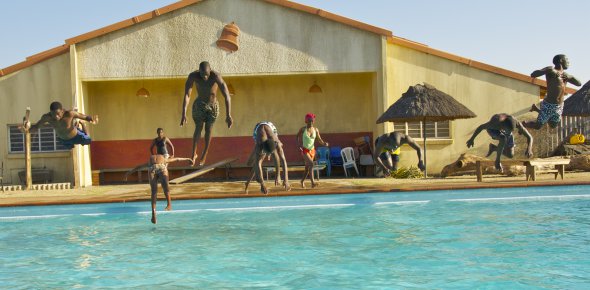
Somewhere, between City of God and Blue Crush, “Otelo Burning” is a coming of age story set against the backdrop of Nelson Mandela’s release from prison.
27 Jun
Anfiteatro ao Ar Livre
Read more
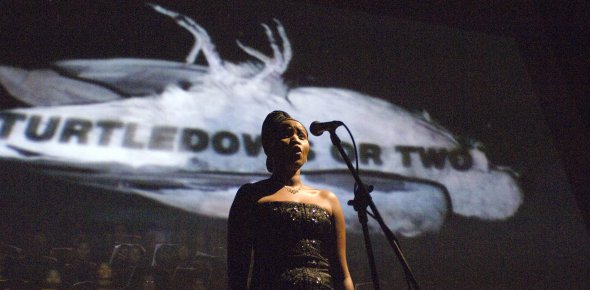
Rewind, by Liza Key (South Africa)
The Truth and Reconciliation Commission (TRC) was an extraordinary moment in our collective histories, a struggle to forgive, where 21 000 victims told their stories and 7 000 perpetrators confessed their crimes. To mark its tenth anniversary, South African composer Philip Miller used ‘shards’ from recorded testimonies - fragments of exhalations, intonations, moans, murmurs, gasps – to compose “Rewind: A Cantata for Voice, Tape and Testimony”. This is the engrossing and, at times, harrowing story behind this exceptional and unusual artwork. Between excerpts of the Market Theatre performance, directed and designed by Gerhard Marx, Miller (composer of “Yizo Yizo”, “Heartlines”, “Kentridge’s 9 Drawings for Projection” and “Noyce’s Catch a Fire”) tells the story of the cantata’s development, and the recordings that inspired him are placed in a visual context using interviews with some of those who testified, and public broadcast and secret service archive footage.
26 Jun
Craig Freimond
Anfiteatro ao Ar Livre
Read more
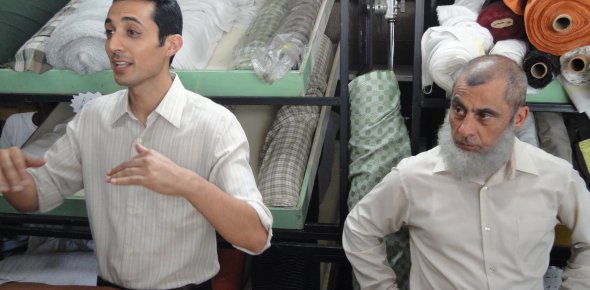
Cassim is a young Muslim man who works in his father's fabric shop in Johannesburg.
25 Jun
Anfiteatro ao Ar Livre
Read more
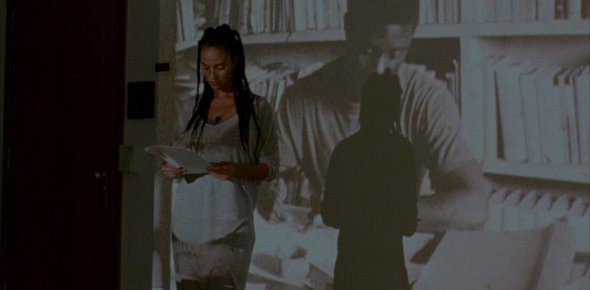
"Cacheu", "Conakry" e "Cuba" (trilogy), by Filipa César (Portugal)
“Cacheu” is a lecture, performed by Joana Barrios, that brings together elements of César’s research on Guinean cinema and four colonial statues (stored today at the Cacheu fortresses, constructed by the Portuguese in 1588, and one of the first bastions of the establishment of the slave trade in Guinea Bissau). The lecture traces through different moments where these statues cast symbolic conflicts: on a pedestal during Portuguese colonialism, dethroned and broken in pieces on the ground after Independence as showed in the film Sans Soleil by Chris Marker, as a background props in Mortu Nega by Flora Gomes, and finally as debris at the Cacheu fortress.
24 Jun – 27 Jun – 1 Jul – 4 Jul
Anfiteatro ao Ar Livre
Read more
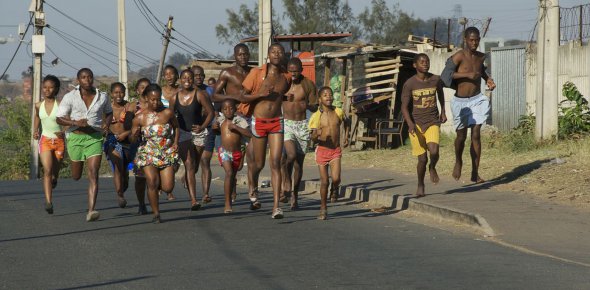
This year’s edition of the Next Future Cinematheque will consist of two types of films: on 24 June, we will be showing the world première of the film entitled “Kadjike” by Sana Na N’hada and Luís Correia, and on 25 June, three short films by Filipa César, followed by the Portuguese première of the film “Sem flash: homenagem a Ricardo Rangel”, by Bruno Z’Graggen.
The second set of films is by the South African curator Joan Legalamitlwa, whose selection is named "Mzansi - The Reel South Africa". "Mzansi" is a South African slang word which is associated with all that is cool and with it; all that is fresh and contemporary; all that is innovative and visionary. The term can also be used to know the South Africa that has been built during 20 years of existence as a democratic country.
24 Jun
Sana Na N’Hada
Anfiteatro ao Ar Livre
Read more
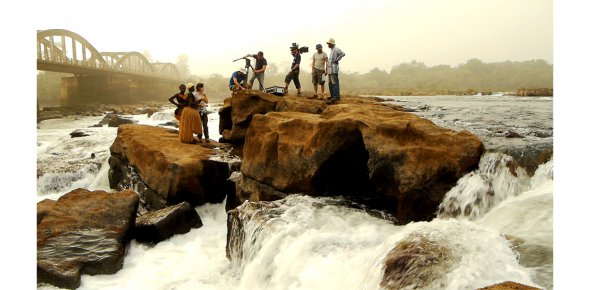
As in the original paradise, the inhabitants of the Bissagos archipelago, located in the west coast of Africa, live according to ancient traditions and in absolute respect for nature, until, one day, a gang of drug dealers occupies their sacred islands.
2012
6 Jul
Patricio Guzmán
Anfiteatro ao Ar Livre
Read more
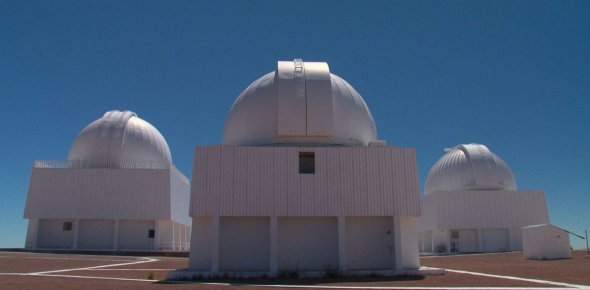
In Chile, at three thousand meters altitude, astronomers from all over the world gather together in the Atacama desert to observe the stars.
5 Jul
Ahmed El Maanouni
Anfiteatro ao Ar Livre
Read more
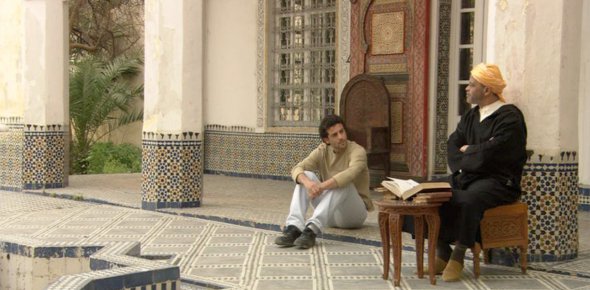
Amin, a young architect who lives in Paris, returns suddenly to Fès, Morocco where his uncle is dying. He did not speak to the man who brought him up since he left his hometown Fès ten years earlier to study and settle in Paris.
5 Jul
Tahani Rached
Anfiteatro ao Ar Livre
Read more
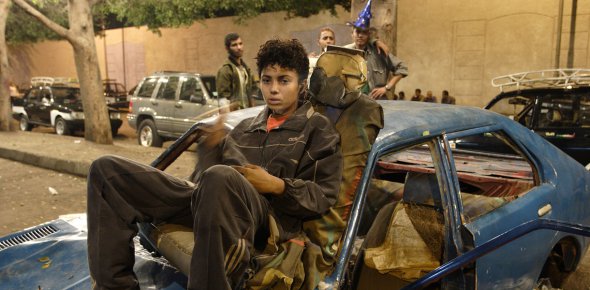
“El-Banate Dol -These Girls” plunges us into the universe of girls living in the streets of Cairo, a universe of violence and oppression, as well as freedom.
4 Jul
Sofia Djama
Anfiteatro ao Ar Livre
Read more
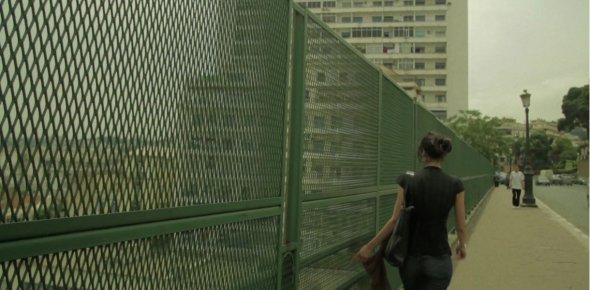
One evening in Algiers, Myassa is attacked by a failing rapist.
4 Jul
Amine Hattou
Anfiteatro ao Ar Livre
Read more
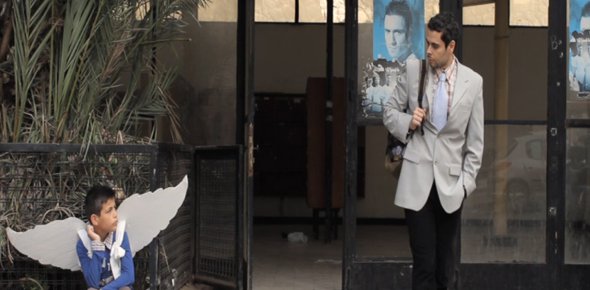
Since he was young, Nassim wakes up hovering over his bed.
4 Jul
Lyes Salem
Anfiteatro ao Ar Livre
Read more
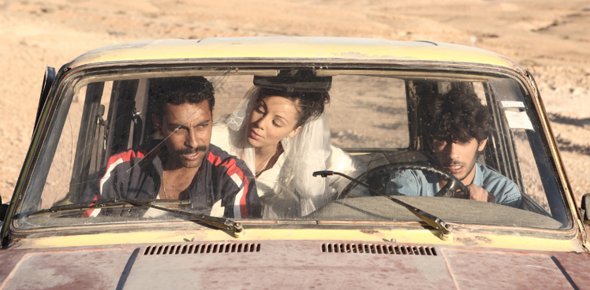
A village somewhere in Algeria. Proud and cocky, Mounir aspires to be recognized for his just merits. His Achilles heel: everyone jokes about his sister, Rym, who goes to sleep at the drop of a hat.
3 Jul
Jilani Saadi
Anfiteatro ao Ar Livre
Read more
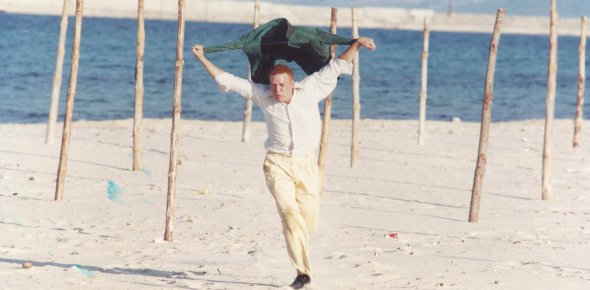
Khorma is different! With his red hair and strangely pale complexion for a Tunisian, many people think he’s retarded.
3 Jul
Oubeyd-Allah Ayari
Anfiteatro ao Ar Livre
Read more

There are moments in life when everything belongs to us, moments that last for only a few brief seconds and yet one has the impression of possessing eternity.
3 Jul
Amine Chiboub
Anfiteatro ao Ar Livre
Read more
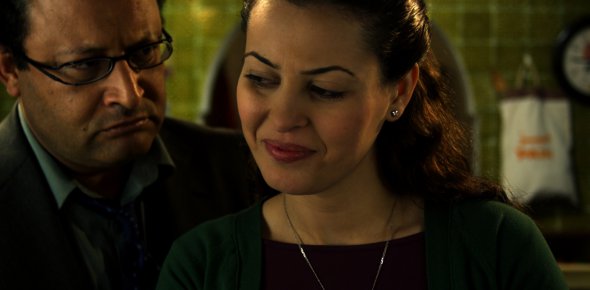
A company's CEO is told off by his wife on the phone.
2 Jul
Emad Maher
Anfiteatro ao Ar Livre
Read more
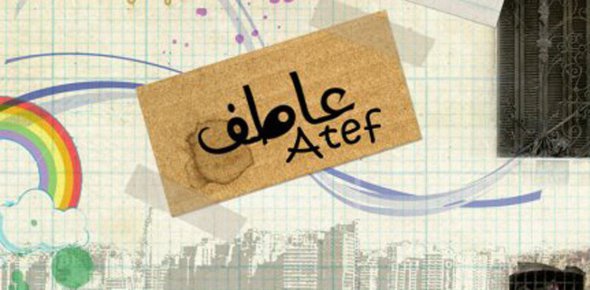
Rain and exchanged names can sometimes be a catalyst for two strangers to enroll in a conversation.
2 Jul
Youssef Chahine
Anfiteatro ao Ar Livre
Read more
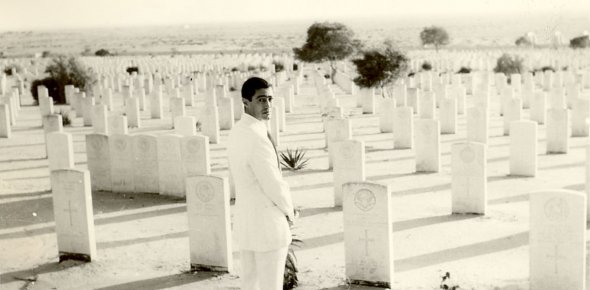
Alexandria, Why? Marked a radical, newly introspective turn in Chahine’s active career, a sharp departure from his Fifties musicals and melodramas and his later epics and political films.
28 Jun
Faouzi Bensaidi
Anfiteatro ao Ar Livre
Read more
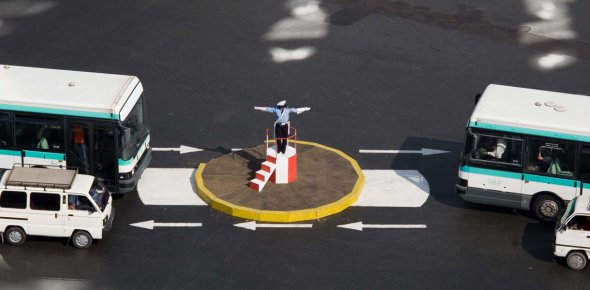
Casablanca is a city of contrasts, simultaneously modern and old-fashioned. Kamel is a hitman, who receives his contracts over the Internet.
28 Jun
Islam El-Azzazi
Anfiteatro ao Ar Livre
Read more
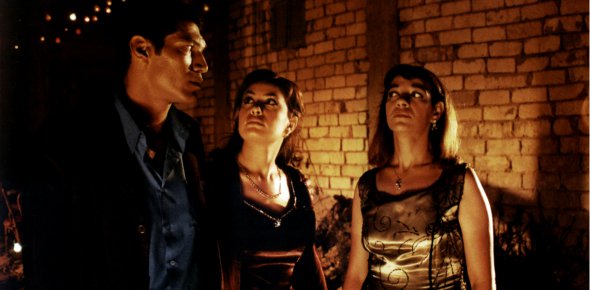
Raouf spends his days racing with time, trying to make profit, and playing power games with others especially with Nadia his fiancé…
28 Jun
Sherif El-Bendary
Anfiteatro ao Ar Livre
Read more
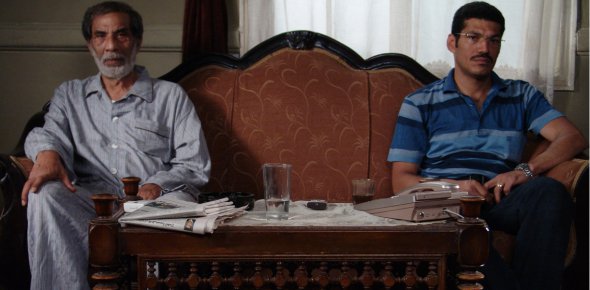
Is Soliman taller? And so wondered Soliman's father when his 32 year old son visited him.
27 Jun
Faouzi Bensaidi
Anfiteatro ao Ar Livre
Read more

For Hakim and his younger brother Said, the day lengthens in time earning money with small jobs. First, in the cemetery, where they whitewash tombs, then at a blind liquor merchant. At the edge of the cliff, a few empty bottles could make the children’s fortune...
27 Jun
Faouzi Bensaidi
Anfiteatro ao Ar Livre
Read more
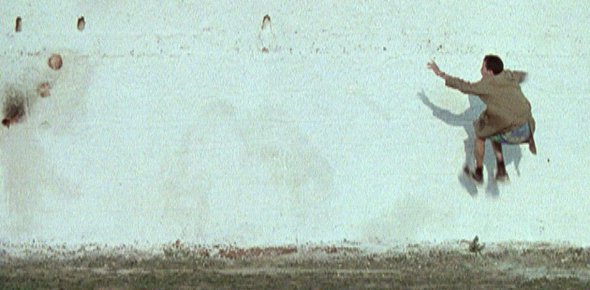
The short and endless tale of a wall coming up against men…
27 Jun
Leïla Kilani
Anfiteatro ao Ar Livre
Read more
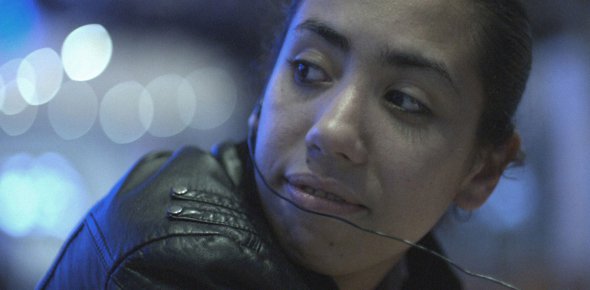
Tangiers – Today, four young twenty-year-old women work to get through the day and live through the night. They are hard working women divided into two categories: textiles and shrimps.
26 Jun
Oussama Fawzi
Anfiteatro ao Ar Livre
Read more
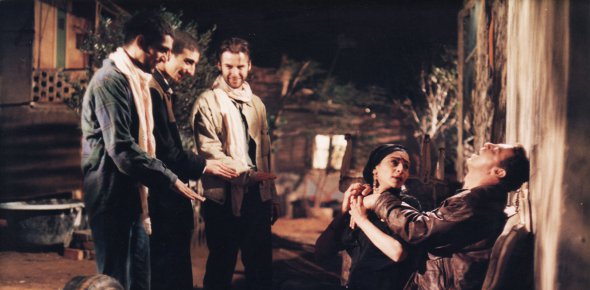
A homeless dies from an overdose... His pals reject the idea of not being able to see him alive. Tabl – ‘drum’ is the nick-name – who left his luxurious life, his job and family, choosing the life of anarchy and madness among a band of lost souls.
26 Jun – 5 Jul
Anfiteatro ao Ar Livre
Read more
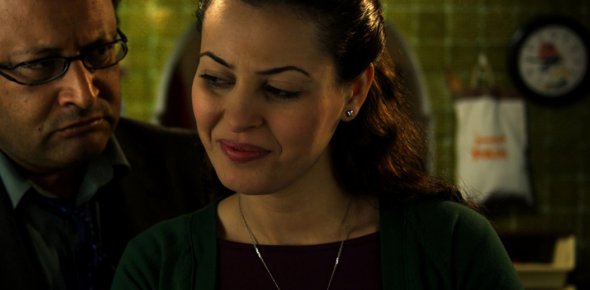
Background
The Arab culture and especially the North Africa region has met many crucial turns during the last 40 years, yet, for the last 2 decades the general atmosphere and surrounding have been stiff / and still that was hard to differentiate it from any other culture decline, due to the spread-out dictatorship regimes and the lost concept of true leadership, while the tone of repression and injustice kept rising slowly. Tunisia had the first spark and tip of the arrow that was followed by several Arab revolutions encouraged by the inspiring quick turnover of Tunisian regime. The cinematic scene was often commercial and rarely competitive but when it was the case, it was strong even compared to Europe & world cinema.
26 Jun
Omar Zohairy
Anfiteatro ao Ar Livre
Read more
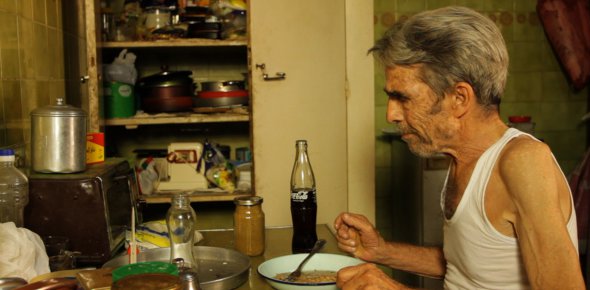
As years and years go by, silence befalls the marriage of a 70 year old man and woman, a silence that expresses the boredom and agony of a never ending routine life, a silence that is only pierced by their sighs and breaths.
2011
1 Jul
Debs Gardner-Paterson
Open-Air Amphitheatre
Read more
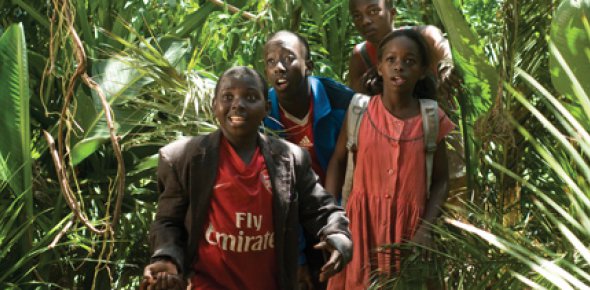
30 Jun
Jorge Sierra
Anfiteatro ao Ar Livre
Read more
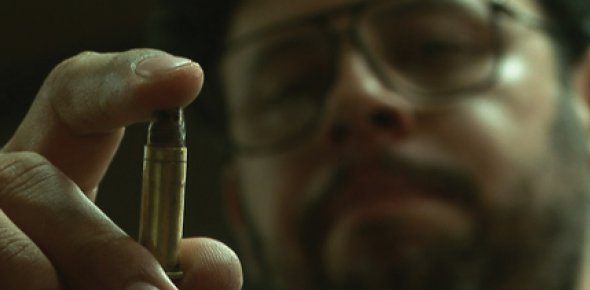
29 Jun
Thenjiwe Nkosi, Rahmatou Keïta
Open-Air Amphitheatre
Read more
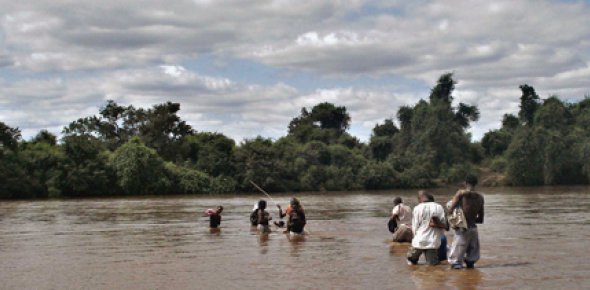
28 Jun
Moumoni Jupiter Sodré, Michel K. Zongo, Dyanna Gaye
Open-Air Amphitheatre
Read more
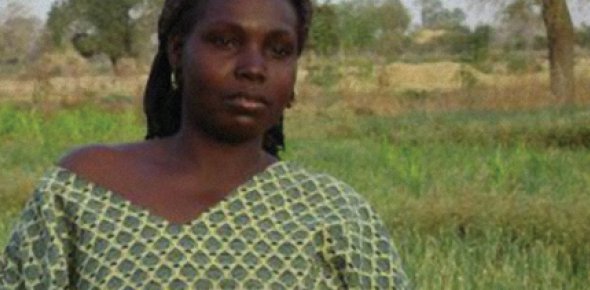
25 Jun
João Salaviza, Vicent Moloi, Paz Encina
Open-Air Amphitheatre
Read more
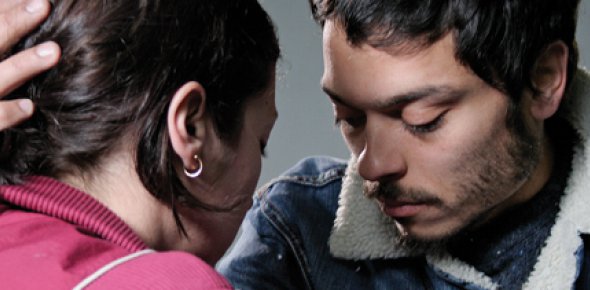
24 Jun
Werner Herzog
Open-Air Amphitheatre
Read more

23 Jun
Mahassine Hachad, Marc e Nick Francis
Open-Air Amphitheatre
Read more
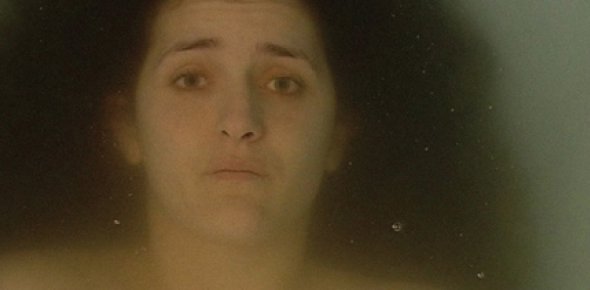
2010
10 Jul
Sérgio Bernardes
Open-Air Amphitheatre
Read more
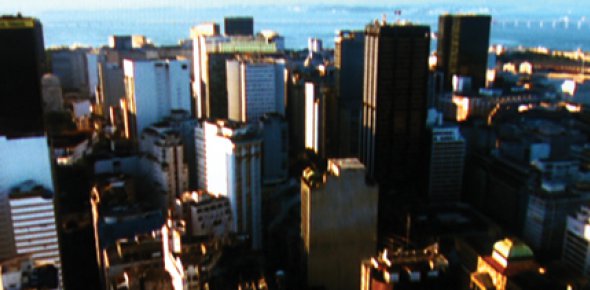
This is a documentary by Sergio Bernardes (Rio de Janeiro, 1944) about Brazil in all of its cultural, geographical and social diversity.
9 Jul
Abderrahmane Sissako
Open-Air Amphitheatre
Read more
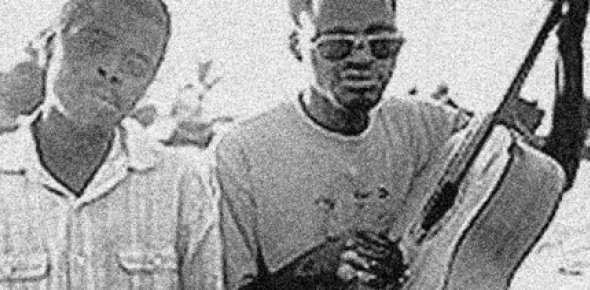
Mauritanian director Abderrahmane Sissako (b. 1961) records his journey across war-torn Angola to find an old friend but really to recapture his own hopes for Africa.
8 Jul
Vicente Ferraz
Open-Air Amphitheatre
Read more
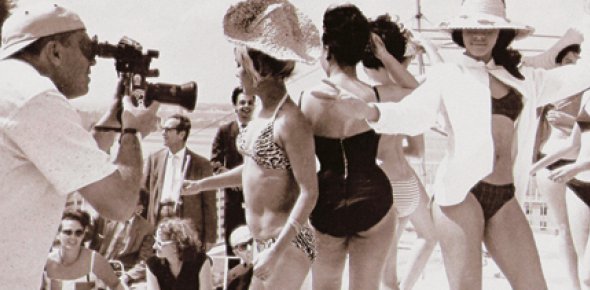
Soy Cuba – O Mamute Siberiano, directed by Vicente Ferraz (Rio de Janeiro, 1965), tells the fascinating story of the film Soy Cuba, by Mikhail Kalatozov, the first and only co-production between Cuba and the now extinct Soviet Union.
7 Jul
Mark Francis and Nick Francis
Open-Air Amphitheatre
Read more
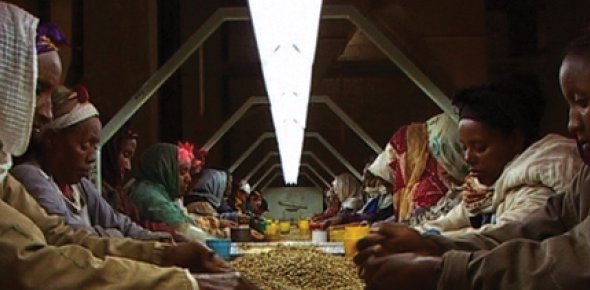
Multinational coffee companies now rule our shopping malls and supermarkets and dominate the industry worth over $80 billion, making coffee the most valuable trading commodity in the world after oil. But while we continue to pay for our lattes and cappuccinos, the price paid to coffee farmers remains so low that many have been forced to abandon their coffee fields.
6 Jul
Isabel Noronha, Eduardo Coutinho
Open-Air Amphitheatre
Read more
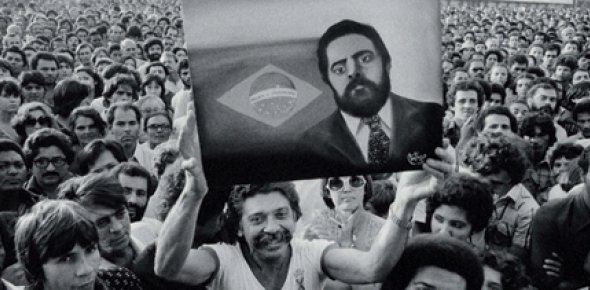
Double feature with the films "Trilogia das Novas Famílias" from Isabel Noronha and "Peões" from Eduardo Coutinho.
1 Jul
Sergio Castro
Open-Air Amphitheatre
Read more
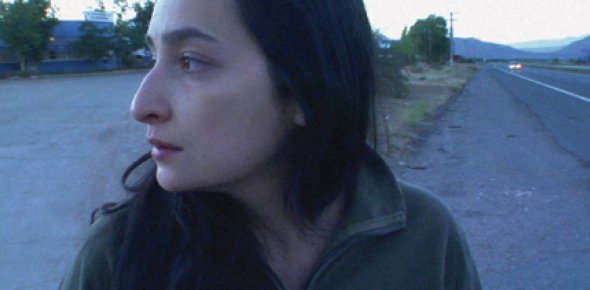
Paseo, by Sergio Castro San-Martin, is a film that only lasts for one hour, but is nonetheless immense. It starts out as an on the road film, taking us along the motorway that links Santiago to the north of Chile, passing through the foothills of the Cordillera. A mother takes her teenage son to visit his father, from whom she separated ten years ago.
30 Jun
Gerardo Naranjo
Open-Air Amphitheatre
Read more
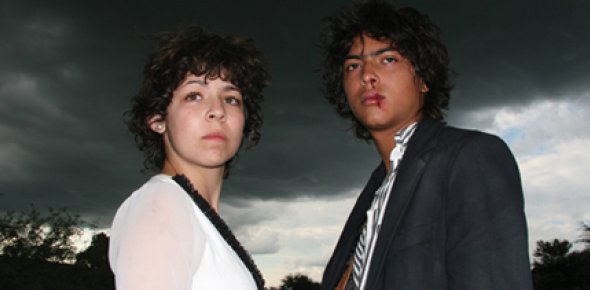
When we discover that Naranjo was himself a young rebel in Salamanca, the city where he was born, and that he founded a university film club called Zero de Comportamento (Zero for Conduct), the title of a short film by Jean Vigo about rebelliousness, we are not surprised to find that this film is also about young rebels.
29 Jun
Ciro Guerra
Open-Air Amphitheatre
Read more
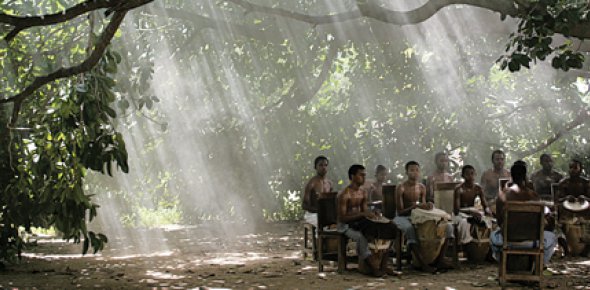
Ignacio Carrillo spent his whole life travelling through the villages and regions of Northern Colombia, playing music and traditional songs on his accordion, a legendary instrument that was said to be cursed, because it once belonged to the devil. As he became older, he got married and settled with his wife in a small town, leaving his nomadic life behind.
23 Jun – 24 Jun
Khalo Matabane
Open-Air Amphitheatre
Read more
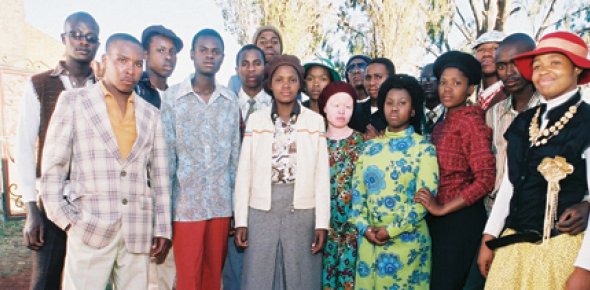
In his mini-series, the South African director Khalo Matabane (b. 1975) tells us the story of a black teenager who falls in love with a young political activist. In order to win over her affection, he enters into the world of the revolutionary struggle against apartheid.
22 Jun
Claudia Llosa
Open-Air Amphitheatre
Read more
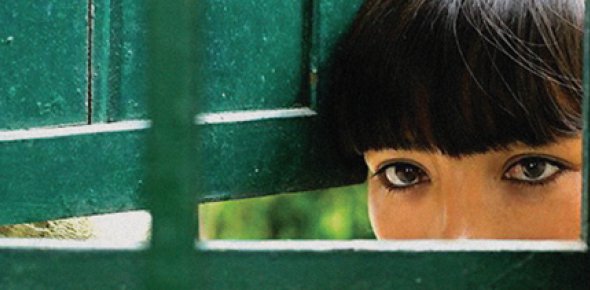
A film made by the Peruvian director Claudia Llosa (Lima, 1976), whose plot is based on the fact that the young Fausta (Magaly Solier) believes in the legend that she is infected with a rare disease known as the "milk of sorrow", transmitted through fear and suffering by means of the mother’s milk, because her own mother was raped by terrorists during a very difficult period in modern Peruvian history, in the 1980s.
























































